Search
Search Results
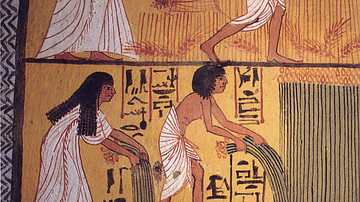
Definition
Field of Reeds (Aaru)
A'Aru (The Field of Reeds) was the Egyptian afterlife, an idealized vision of one's life on earth (also known as Sekhet-A'Aru and translated as The Field of Rushes). Death was not the end of life but a transition to another part of one's...
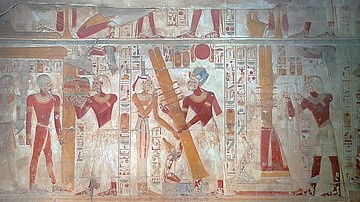
Article
The Forty-Two Judges
The Forty-Two Judges were divine entities associated with the afterlife in ancient Egypt and, specifically, the judgment of the soul in the Hall of Truth. The soul would recite the Negative Confession in their presence as well as other gods...
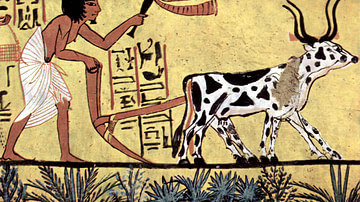
Article
Egyptian Afterlife - The Field of Reeds
The ancient Egyptians believed that life on earth was only one part of an eternal journey which ended, not in death, but in everlasting joy. When one's body failed, the soul did not die with it but continued on toward an afterlife where one...
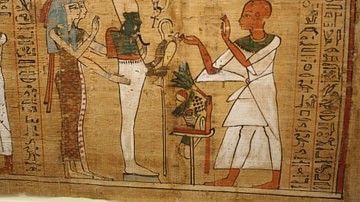
Definition
Egyptian Book of the Dead
The Egyptian Book of the Dead is a collection of spells which enable the soul of the deceased to navigate the afterlife. The famous title was given the work by western scholars; the actual title would translate as The Book of Coming Forth...
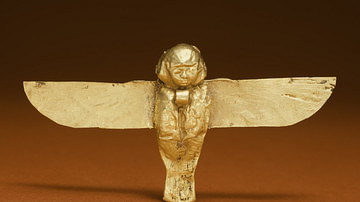
Definition
Ghosts in Ancient Egypt
A text known as The Lay of the Harper, dating from the Middle Kingdom (2040-1782 BCE) encourages its audience to make the most of the time because death is a certainty: Make a holiday! And do not tire of playing! For no one is allowed...
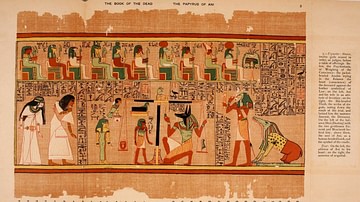
Definition
The Negative Confession
The Negative Confession (also known as The Declaration of Innocence) is a list of 42 sins which the soul of the deceased can honestly say it has never committed when it stands in judgment in the afterlife. The soul would recite these in the...
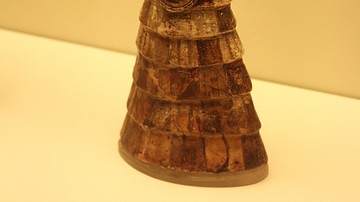
Definition
Egyptian Faience
Egyptian faience is a glassy substance manufactured expertly by the ancient Egyptians. The process was first developed in Mesopotamia, first at Ur and later at Babylon, with significant results but faience production reached its height of...
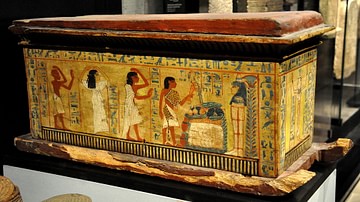
Article
The Egyptian Afterlife & The Feather of Truth
Is it possible to have a heart that is lighter than a feather? To the ancient Egyptians it was not only possible but highly desirable. The after-life of the ancient Egyptians was known as the Field of Reeds, a land just like what one knew...
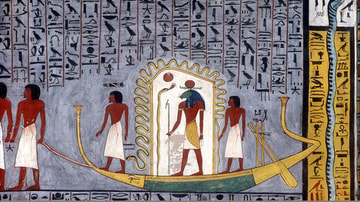
Article
The Pyramid Texts: Guide to the Afterlife
The Pyramid Texts are the oldest religious writings in the world and make up the principal funerary literature of ancient Egypt. They comprise the texts which were inscribed on the sarcophogi and walls of the pyramids at Saqqara in the 5th...
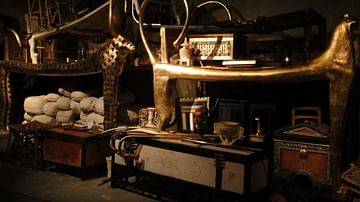
Article
Grave Goods in Ancient Egypt
The concept of the afterlife changed in different eras of Egypt's very long history, but for the most part, it was imagined as a paradise where one lived eternally. To the Egyptians, their country was the most perfect place which had been...